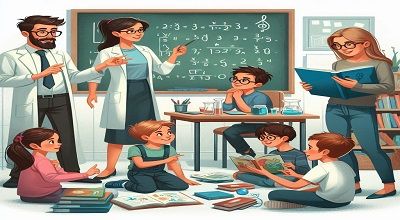What do teachers do?
What do teachers do? Teachers play a crucial role in education by guiding and facilitating the learning process for students. Their responsibilities can vary depending on the level of education (e.g., primary, secondary, or higher education) and the subject matter they teach.
Here are some common tasks and responsibilities for teachers:
- Planning and preparing lessons: Teachers design instructional materials, create lesson plans, and organize activities that align with educational objectives and curriculum standards.
- Classroom instruction: Teacher deliver lessons to students, using various teaching methods and strategies to cater to different learning styles. They explain concepts, provide examples, and engage students in discussions.
- Assessment and evaluation: Teacher assess students’ understanding of the material through exams, quizzes, projects, and other forms of evaluation. They provide feedback on student performance and may assign grades.
- Classroom management: Teachers establish and maintain a positive and productive learning environment. This includes managing student behavior, resolving conflicts, and creating a safe and inclusive space for learning.
- Individualized support: Teacher often provide additional assistance to students who may be struggling with the material. They may offer extra help, resources, or alternative approaches to help students succeed.
- Communication with parents and stakeholders: Teachers regularly communicate with parents or guardians to discuss students’ progress, address concerns, and provide updates on classroom activities. They may also participate in parent-teacher conferences.
- Professional development: Teachers engage in ongoing professional development to stay current with educational trends, teaching methodologies, and advancements in their subject areas.
- Curriculum development: In addition to implementing existing curriculum standards, teacher may contribute to the development of new curriculum materials and educational resources.
- Supervision and extracurricular activities: Teacher may supervise students during lunch, recess, or other non-classroom times. They may also participate in or oversee extracurricular activities, such as clubs, sports, or special events.
- Collaboration with colleagues: Teachers often work collaboratively with other educators, administrators, and support staff to enhance the overall educational experience for students.
Summary
In summary, teachers play a vital role in shaping the intellectual, social, and emotional development of their students, contributing significantly to their future success.
